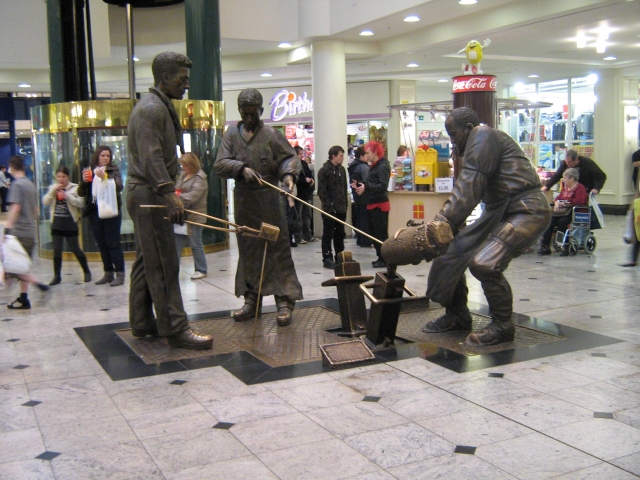<Back to Index>
- Inventor Benjamin Huntsman, 1704
- Sculptor Robert Julius Tommy Jacobsen, 1912
- Prime Minister of Romania Armand Călinescu, 1893
PAGE SPONSOR

Benjamin Huntsman (4 June 1704 – 20 June 1776) was an English inventor and manufacturer of cast or crucible steel.
Huntsman was born the third son of a Quaker farmer in Epworth, Lincolnshire. His parents were Germans who had emigrated only a few years before his birth.
Huntsman started business as a clock, lock and tool maker in Doncaster. His reputation enabled him to also practise surgery in an experimental fashion and was also consulted as an oculist.
Huntsman experimented in steel manufacture, first at Doncaster. Then in 1740 he moved to Handsworth, near Sheffield. Eventually, after many experiments, Huntsman was able to make satisfactory cast steel, in clay pots or crucibles holding about 34 pounds of blistered steel each. A flux was added and they were covered and heated by means of coke for about three hours. The molten steel was then poured into moulds and the crucibles reused. The local cutlery manufacturers refused to buy it as it was harder than the German steel they were accustomed to using. For a long time Huntsman exported his whole output to France.
The growing competition of imported French cutlery made from Huntsman's cast - steel alarmed the Sheffield cutlers, who, after trying to get the export of the steel prohibited by the British government, were compelled in self - defence to use it. Huntsman had not patented his process, and his secret was discovered by a Sheffield iron founder called Walker. Walker according to a popular story got into Huntsman's works in the disguise of a starving beggar asking to sleep by a fire for the night.
In 1770, he moved his enterprise to Attercliffe where he prospered for another six years. Benjamin Huntsman died in 1776, and the business was taken over by his son, William Huntsman (1733 – 1809).
At Sheffield's Northern General Hospital one of the original main buildings is named after him, and in the city centre is a Wetherspoons pub called The Benjamin Huntsman.